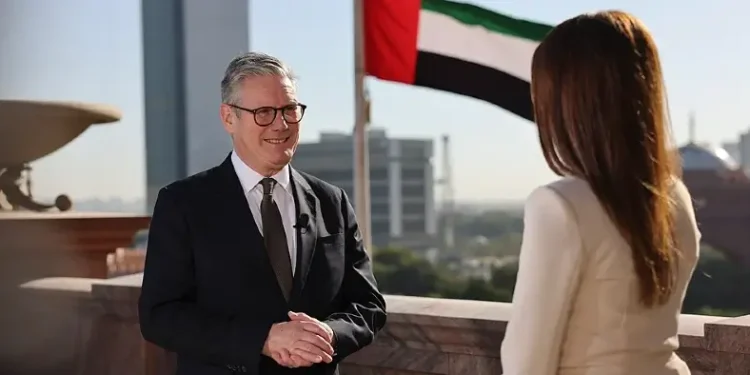The Prime Minister held a video call with leaders of Qatar, Jordan, Egypt, France and Canada on 15 September 2025. They condemned Israel’s recent strike in Doha, reaffirmed support for Qatar’s mediation role, and called for an immediate ceasefire and humanitarian relief for Gaza.
Escalating Diplomatic Pressure
The talks reflected growing global unease over Israel’s recent actions, particularly the strike that targeted Hamas leaders meeting in Doha. While Israel claimed its objective was to disrupt ceasefire negotiations, the attack sparked widespread criticism for endangering diplomatic venues.
The Prime Minister applauded Qatar’s steadfast role in facilitating dialogue, affirming that the UK would support mediation efforts and press for accountability at international forums. France and Canada echoed this stance, underscoring the urgent need for coordinated diplomacy.
International Condemnation of the Doha Strike
Leaders stressed that striking in Qatar represented an unacceptable breach of international norms and threatened the integrity of peace processes. The coalition agreed that such actions risk undermining future negotiations by creating insecurity around neutral mediation spaces.
Humanitarian Priorities in Gaza
Alongside their diplomatic concerns, the leaders placed humanitarian suffering at the centre of their discussions. They demanded that Israel halt its ground offensive in Gaza and immediately allow a surge of humanitarian aid. Civilians face dire shortages of food, medicine, and shelter, raising fears of famine and mass displacement.
Calls for Hostage Release
The coalition also urged swift action to secure the release of hostages, framing it as a vital step towards de-escalation. Leaders warned that without progress on humanitarian access and hostage releases, achieving a ceasefire would remain unattainable.
Reinforcing Qatar’s Mediation Role
Qatar has been central to ongoing negotiations and now finds itself under heightened international backing. Both Egypt and Jordan pledged to deepen regional cooperation, ensuring channels for dialogue remain open. France and Canada highlighted their commitment to amplifying Qatar’s diplomatic role at the UN and G7.
The UK confirmed its readiness to act as a facilitator in multilateral talks, positioning itself as a bridge between Western and Arab states.
Coordinated Diplomatic Steps
In practical terms, the coalition discussed a range of immediate measures to reinforce accountability and safeguard negotiations.
-
Summoning Israeli ambassadors to register formal protests.
-
Pushing for an emergency UN Security Council session to condemn the strike.
-
Requesting observer roles for neutral parties, such as the International Red Cross, to guarantee the safety of mediation spaces.
Diplomatic Responses from Each Nation
| Nation | Expected Response |
|---|---|
| Qatar | Double down on mediation, demand safety guarantees, and leverage international support. |
| Jordan & Egypt | Intensify aid diplomacy, push for international conferences, and sustain dialogue with Israel. |
| France & Canada | Condemn strikes, back humanitarian access, and promote peace talks at the UN and G7. |
| United Kingdom | Support mediation, humanitarian aid, and multilateral facilitation roles. |
Why This Matters Globally
Regional Consequences
The Doha strike risks destabilising already fragile regional dynamics. Leaders fear escalation could disrupt trade, worsen refugee flows, and undermine trust between states that rely on neutral venues for diplomacy.
Humanitarian Urgency
For Gaza’s population, the stakes could not be higher. The international community warned that unless humanitarian aid flows immediately, conditions could collapse into widespread famine and disease.
Diplomatic Opportunity
Despite tensions, the unified stance of multiple global powers marks a rare moment of consensus. It may open the door for a new diplomatic track, with discussions expected at a Two-State Solution conference later this month in New York.
Broader View
The coalition’s call reflects mounting global pressure on Israel to recalibrate its military strategy and prioritise diplomacy. If momentum continues, this may set the stage for new international legal measures and economic consequences should Israel fail to adjust course.
At the same time, humanitarian organisations anticipate that political alignment will strengthen demands for unfettered access to Gaza. For millions displaced, the outcome of these talks will directly affect their survival and future stability.
In Summary
This summit represents a turning point in international engagement with the Gaza conflict. By condemning strikes in Doha, supporting Qatar’s mediation, and demanding urgent aid, the UK and its partners signal a stronger, united front for peace. Whether these calls translate into action will define the next phase of Middle East diplomacy.
Sources: Prime Minister’s Office, 10 Downing Street, Jordan News, Aljazeera and The Rt Hon Sir Keir Starmer KCB KC MP.
Prepared by Ivan Alexander Golden, Founder of THX News™, an independent news organization delivering timely insights from global official sources. Combines AI-analyzed research with human-edited accuracy and context.









